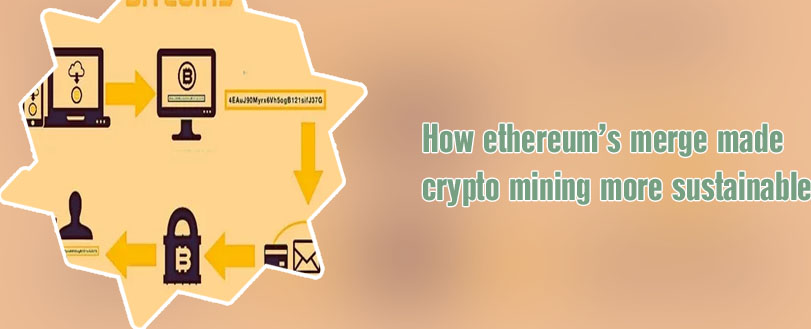Bitcoin mining is a complex process that involves solving mathematical puzzles using powerful computers. To understand how mining bitcoin works, it is important to explore various aspects of this topic. The following articles provide in-depth information on the mechanics of bitcoin mining, the role of miners in the network, the energy consumption associated with mining, and the future of bitcoin mining.
Unraveling the Mystery of Bitcoin Mining: A Comprehensive Guide
Bitcoin mining is a process that has become increasingly popular in recent years due to the rise of cryptocurrencies. This comprehensive guide aims to unravel the mystery behind Bitcoin mining by providing a detailed overview of how it works and why it is important in the world of digital currencies.
To begin with, Bitcoin mining is the process of validating transactions on the Bitcoin network and adding them to the public ledger known as the blockchain. Miners use powerful computers to solve complex mathematical puzzles in order to verify transactions and secure the network. In return for their efforts, miners are rewarded with newly minted Bitcoins.
One of the key concepts in Bitcoin mining is the mining difficulty, which adjusts every 2016 blocks to ensure that new blocks are mined approximately every 10 minutes. This difficulty level is crucial in maintaining the security and stability of the network, as it prevents miners from monopolizing the system.
Furthermore, the guide delves into the role of mining pools in the Bitcoin ecosystem. Mining pools are groups of miners who combine their computational power to increase their chances of successfully mining a block. By pooling resources, miners can earn more consistent rewards and reduce the variance in their earnings.
The Vital Role of Miners in Securing the Bitcoin Network
Bitcoin miners play a critical role in securing the Bitcoin network, ensuring its decentralization and reliability. These miners are responsible for validating transactions, adding them to the blockchain, and maintaining the network's security. Without miners, the Bitcoin network would be vulnerable to attacks and manipulation.
Miners use powerful computers to solve complex mathematical problems that confirm transactions and create new blocks. In return for their efforts, miners are rewarded with newly minted bitcoins and transaction fees. This incentivizes miners to continue securing the network and ensures its continued operation.
The work of miners is essential for the functioning of the Bitcoin network. They act as the backbone of the system, preventing double-spending and ensuring the integrity of transactions. Their efforts help to maintain the trust and stability of the network, making it a reliable platform for peer-to-peer transactions.
In conclusion, miners play a vital role in securing the Bitcoin network and ensuring its smooth operation. Their work is crucial for maintaining the decentralization and security of the network, making them indispensable to the world of cryptocurrencies.
This article is important for understanding the key role that miners play in the Bitcoin network and highlighting their significance in maintaining its security and reliability.
The Environmental Impact of Bitcoin Mining: Challenges and Solutions
Bitcoin mining has become a hot topic in recent years due to its significant environmental impact. The process of mining bitcoins consumes a massive amount of electricity, leading to increased carbon emissions and contributing to climate change. As the price of bitcoin continues to rise, so does the energy consumption associated with its mining. This has raised concerns about the sustainability of bitcoin mining and the need for solutions to mitigate its environmental footprint.
One of the main challenges of bitcoin mining is its high energy consumption. The process of mining bitcoins requires specialized hardware that is energy-intensive, leading to a significant carbon footprint. In addition, the increasing difficulty of mining bitcoins means that more energy is needed to mine each new coin, further exacerbating the environmental impact.
To address these challenges, several solutions have been proposed to make bitcoin mining more sustainable. One potential solution is to shift towards renewable energy sources such as solar or wind power. By using clean energy sources to power bitcoin mining operations, the environmental impact of mining bitcoins can be significantly reduced.
Another solution is to improve the efficiency of mining hardware. By developing more energy-efficient mining equipment, miners can reduce their energy consumption and carbon emissions. Additionally, implementing energy-saving measures such as cooling systems can help further reduce the environmental impact of bitcoin mining.
The Evolution of Bitcoin Mining: What Lies Ahead for Miners
Bitcoin mining has come a long way since its inception in 2009. As the cryptocurrency gained popularity, the mining process has evolved significantly to keep up with the increasing demand and competition. In the early days, mining could be done using a simple laptop or desktop computer, but as more miners joined the network, the difficulty level increased, requiring more powerful hardware such as ASICs (Application-Specific Integrated Circuits).
Looking ahead, the future of Bitcoin mining is likely to be shaped by several key factors. One of the most important considerations is the environmental impact of mining. With concerns about the carbon footprint of mining operations growing, there is a push towards more sustainable mining practices. This has led to the development of renewable energy solutions and more energy-efficient mining hardware.
Another factor that will influence the evolution of Bitcoin mining is the regulatory environment. As governments around the world grapple with how to regulate cryptocurrencies, miners may face increased scrutiny and compliance requirements. This could impact the profitability of mining operations and the decentralization of the network.
Overall, the future of Bitcoin mining is uncertain but full of potential. Miners will need to adapt to changing market conditions and technological advancements to stay competitive. By staying informed and proactive, miners can navigate the challenges and opportunities that lie ahead in this dynamic industry


Recent Comments